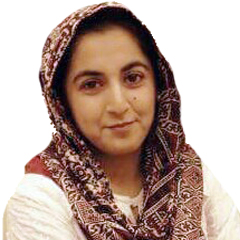The Population Council recently held a groundbreaking consultative meeting in Islamabad with human rights and women’s rights experts to dissect the challenges posed by overpopulation and the subsequent strain on resources. The session revolved around the concept of Tawazun – a nuanced approach advocating a balance between population and resources, as opposed to the traditionally criticized notion of “population control.” This shift is not merely semantic but reflects a deeper commitment to rights-based development, offering individuals the freedom to make informed decisions while acknowledging the need for equitable resource management.
The urgency to address overpopulation stems from Pakistan’s current demographic trajectory. With a population exceeding 240 million and a growth rate of 1.54 percent annually, the nation struggles to meet the demands of its people. This imbalance manifests in profound human rights violations, particularly against women. Data from the United Nations Population Fund (UNFPA) highlights that Pakistan’s maternal mortality rate is among the highest in South Asia, with approximately 186 deaths per 100,000 live births – a stark reminder of the inequities faced by women in accessing healthcare.
The consequences of overpopulation are far-reaching, affecting nearly every facet of society. Key challenges identified during the consultation include Education and Child Rights, Justice and Governance, and Gender-Based Violence and Early Marriages.
The burgeoning population has overwhelmed Pakistan’s education system, leaving 23 million children out of school – more than half of them girls. These children are deprived not only of education but also of the opportunity to break the cycle of poverty that perpetuates gender and economic inequalities. Similarly, Pakistan’s judicial system faces significant delays, with cases languishing in courts for years. Lengthy daily cause lists, overburdened judges and under-resourced courts mean that access to justice – particularly for women seeking redress for domestic violence, harassment, or inheritance disputes – is often unattainable. As the population grows, so does the backlog, undermining the fundamental right to timely justice.
With a population exceeding 240 million and a growth rate of 1.54 percent annually, Pakistan struggles to meet the demands of its people.
Overpopulation also amplifies the vulnerabilities of women and girls. Child marriages, often driven by poverty, remain alarmingly common, with 21 percent of girls married before the age of 18. Gender-based violence is also pervasive, with societal norms and resource scarcity creating conditions where women’s rights are routinely compromised. Amidst all these crises, climate change acts as a multiplier. Pakistan’s vulnerability to climate change further exacerbates these challenges. The catastrophic floods of 2022 displaced over 33 million people and caused damages exceeding $30 billion. As resources dwindle due to climate-related shocks, women, often the primary caregivers, bear the brunt of these crises, further marginalizing them in disaster response and recovery efforts.
To practically and effectively manage the population on an emergency basis, it is pivotal to shift the narrative from ‘control’ whereby people often feel intervened, hence they are pushed away, to ‘balance’ whereby more informed and evidence-based decision-making is advocated for.
There is a critical need to reframe the conversation around population management. Historically, campaigns focused on “population control” have faced resistance, particularly from religious leaders and conservative communities. These efforts were often perceived as coercive, infringing upon personal and familial autonomy. In contrast, Tawazun – or balance – offers a rights-based alternative that resonates with cultural and religious sensibilities. Rather than dictating the number of children a family should have, Tawazun emphasizes informed decision-making, equitable access to resources, and shared responsibility. It seeks to empower individuals, particularly women, to make choices that align with their needs and aspirations while ensuring that these choices are sustainable within the broader socio-economic and environmental context.
Countries like Bangladesh offer valuable lessons for Pakistan. Through investments in female education, community-based healthcare, and culturally sensitive family planning campaigns, Bangladesh has successfully reduced its fertility rate from 6.3 children per woman in the 1970s to 2.1 in 2022. These efforts were not framed as “control” measures but as part of broader development goals that respected individual rights and choices.
Pakistan can adapt these strategies to its unique context, leveraging technology and community engagement to drive change. Mobile health (mHealth) initiatives, for instance, can bridge gaps in healthcare access, particularly in remote areas. Similarly, partnerships with religious leaders and community influencers can help dispel myths and foster acceptance of family planning and reproductive health services.
The Tawazun narrative is not just a strategy for managing population growth-it is a vision for a more equitable, inclusive, and sustainable Pakistan. By aligning population dynamics with resource availability, Tawazun seeks to uphold human rights, reduce poverty, and build resilience against future challenges.
Participants at the consultation emphasized the need for multi-stakeholder collaboration, involving government agencies, civil society, and international partners. Policy reforms must be informed by empirical evidence, addressing the root causes of overpopulation while ensuring that solutions are rights-based and culturally appropriate.
The path to Tawazun is not without challenges. It requires political will, sustained investment, and a commitment to equity. But the rewards – measured in healthier families, healthy housing, empowered women, and a more resilient nation – are well worth the effort. As Pakistan navigates the complexities of the 21st century, Tawazun offers a roadmap for balancing population and resources in a way that honours the dignity and rights of all its citizens.
The writer is a lawyer, writer andhuman rights advocate in Pakistan.
